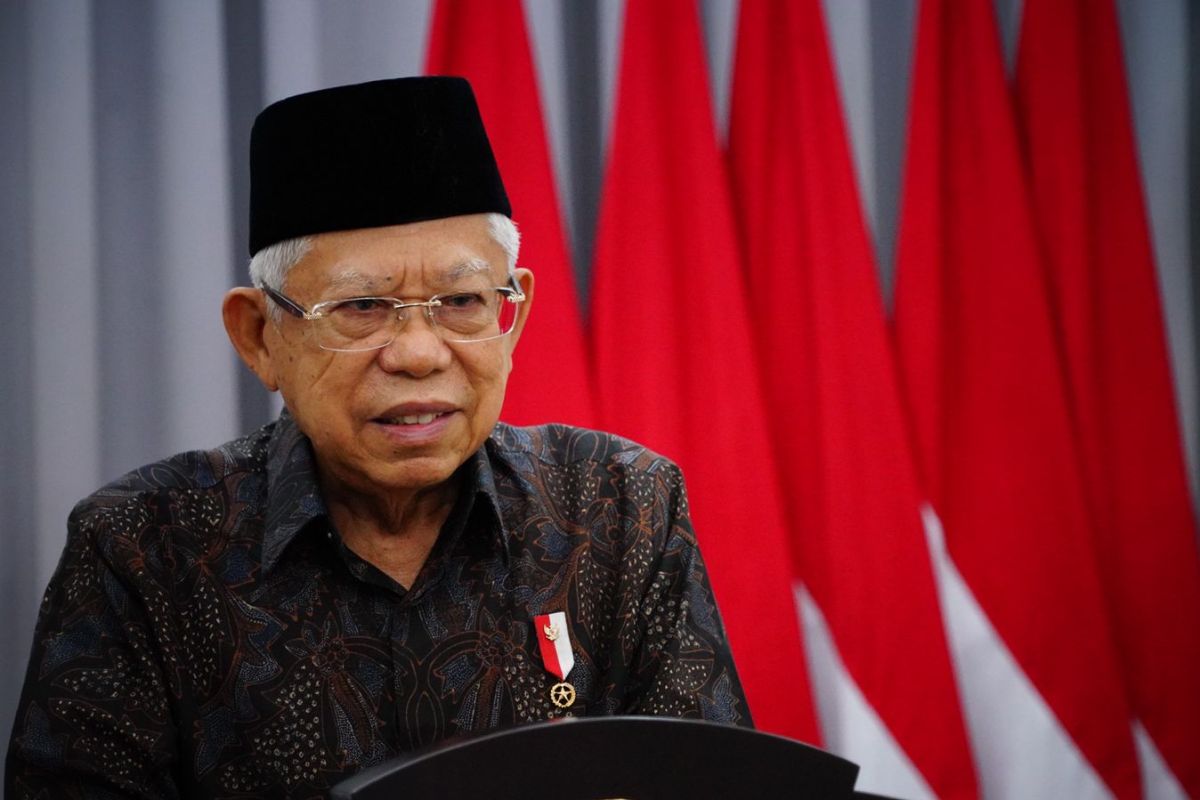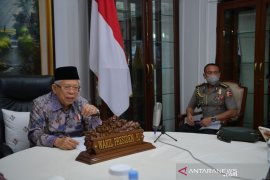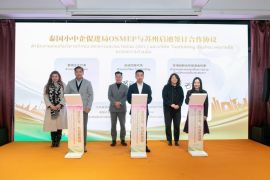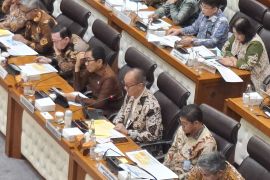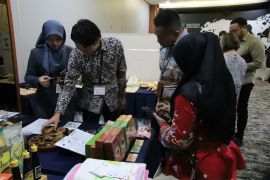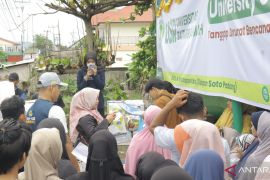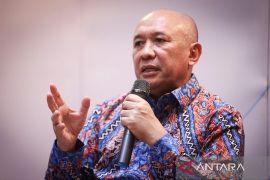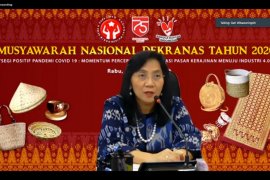I hope the LPPOM MUI would continue to maintain its commitment in conducting the first and most trusted halal certification functionJakarta (ANTARA) - Indonesian Vice President Ma'ruf Amin shed light on four government strategies for encouraging the acceleration of development of micro, small and medium enterprises (MSMEs) in halal industry.
"First, encourage the establishment of Regional Sharia Economic and Finance Committees (KDEKS) in all provinces," the vice president stated while attending the closing of the 1443 H Syawal Festival from the Vice President's official residence in Jakarta, Thursday.
Amin noted that the KDEKS had already been formed in West Sumatra and the same would be followed in Riau, West Java, and others.
The second step is continued streamlining of the halal certification process, including efforts to expedite the achievement of the target of facilitating halal certifications for 10 million MSMEs products.
The vice president urged MSMEs to actively participate in registering their superior products, so that they would be certified halal at the earliest, thereby increasing the added value and competitiveness of their products in addition to strengthening product quality assurance, which was safe, hygienic, and in accordance with Sharia.
The vice president also lauded the active role of The Assessment Institute for Food, Drugs and Cosmetics of the Indonesian Ulema Council (LPPOM MUI) in halal certification. LPPOM MUI's real steps concerning the development of MSMEs in Indonesia should be maintained, including through synergies with related institutions.
"As a pioneer of halal certification and an icon of halal labels for Indonesian halal products, I hope the LPPOM MUI would continue to maintain its commitment in conducting the first and most trusted halal certification function," he stated.
Amin also urged the LPPOM MUI, the Halal Product Guarantee Agency (BPJPH), and various related parties to continue to work together to support the acceleration program of halal certification, especially for MSMEs.
According to the vice president, the third step entails establishing and optimizing the halal industrial area (KIH) as a strategy to strengthen the halal value chain.
The fourth step is to continue to accelerate the domestic halal industry ecosystem that is expected to strengthen the capacity and quality of the halal product industry.
Through strengthening the implementation of these strategies, more products from MSMEs will be able to penetrate the export market.
"The government, through the National Committee for Sharia Economics and Finance, will continue to encourage the consolidation of various facilitation programs in relevant ministries and institutions to provide convenience, in terms of MSME capacity development, legality of licensing, access to financing, and expansion of market access," he explained.
President Director of LPPOM MUI Muti Arintawati stated that the Syawal Festival, initiated since 2021, was the agency's commitment to continually supporting the government's efforts to boost the production of Indonesian halal products, so that they remain globally competitive.
Arintawati stated that the Syawal Festival in 2022 was focused on training for halal communities, activists, and influencers to provide knowledge about halal requirements and the halal certification process to MSMEs in Indonesia.
Related news: Indonesia, Mexico explore cooperation in halal product assurance
Related news: Several regions interested in creating halal industrial areas: gov't
Related news: KNEKS asked to expedite sharia economy development
Translator: Rangga P, Azis Kurmala
Editor: Sri Haryati
Copyright © ANTARA 2022
